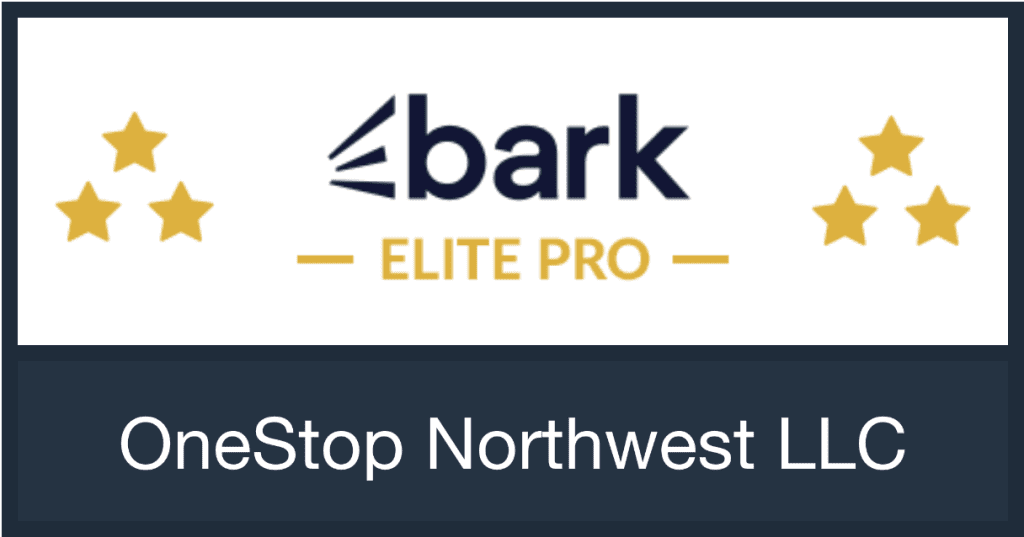The Complete Guide to Denver SEO Audits: Evaluating Performance
When it comes to establishing a robust online presence, performing a Denver SEO audit is crucial for any business aiming to stand out in this bustling metropolitan area. This process not only helps identify the strengths and weaknesses of your website in terms of search engine optimization but also lays down the groundwork for crafting strategies that can propel your business ahead of the competition.
Denver’s market is fiercely competitive, with a myriad of businesses vying for the top spots in search engine results. Understanding where you stand in this environment is not just useful—it’s essential. An SEO audit offers these insights by analyzing various facets of your website and online presence.
Here’s a quick glance at what a typical Denver SEO audit involves:
– Technical SEO: Checks on the architecture and framework of your site
– Content Review: Ensures relevant and valuable content is in place
– On-Page Optimization: Verification of meta tags, headings, and keyword usage
– Off-Page Analysis: Assessment of backlinks and external online factors
– Local SEO: Review relevance to the Denver locality

Understanding these elements can give you an early advantage in planning enhancements to your website, ensuring that you connect more effectively with your target audience in Denver and beyond. Now, let’s delve deeper into what makes SEO audits a pivotal element for success in the digital space.
Understanding SEO Audits
The Importance of SEO Audits
SEO audits are crucial for any business that wants to succeed online, especially in a competitive market like Denver. These audits provide a clear picture of how your website is performing in terms of search engine visibility, traffic, and conversion capabilities. They help identify both the strengths and weaknesses of your site, allowing you to make informed decisions that enhance your online presence.
- Visibility: Without visibility, even the best content and services go unnoticed. An SEO audit ensures that your site is visible to your target audience.
- Traffic: Higher traffic means more opportunities to convert visitors into customers. An SEO audit helps you understand what drives traffic to your site and how to capitalize on it.
- Conversion: Traffic is not beneficial unless it converts. An SEO audit analyzes elements that impact conversion rates, like site speed, navigation, and call-to-action placements.
Key Components of an SEO Audit
-
Technical SEO: This looks at the architecture of your site, ensuring that it is easy for search engines to crawl and index. Factors such as site speed, mobile-friendliness, and secure connections (HTTPS) are evaluated to enhance technical robustness.
-
Content: Content is king in SEO. The audit assesses the quality, relevance, and structure of the content on your site. It checks for proper keyword integration, informational value, and alignment with user intent.
-
On-Page SEO: This involves optimizing individual web pages to rank higher and earn more relevant traffic. Elements like meta tags, headers, and URLs are scrutinized to ensure they are effectively optimized for target keywords.
-
Off-Page SEO: Your website’s authority is often influenced by off-page factors, primarily backlinks. An audit will evaluate your backlink profile’s quality and quantity, helping you understand how your site is perceived by other websites.
-
Local SEO: For businesses targeting Denver, local SEO is vital. This part of the audit ensures your business is correctly listed on Google My Business, and your NAP (Name, Address, Phone number) consistency across local directories to improve local search visibility.
By focusing on these components, a Denver SEO audit offers a comprehensive look at your website’s current state and provides actionable insights that can lead to significant improvements in your online performance. This holistic approach not only boosts your SEO rankings but also enhances user experience, making your site a preferred choice for both new and returning customers.
How Much Does an SEO Audit Cost?
When considering an SEO audit for your Denver business, understanding the cost is crucial. The price can vary widely depending on several factors. Let’s break down these factors and look at the typical price range.
Cost Factors
- Depth of the Audit: The more comprehensive the audit, the higher the cost. A basic audit might only cover surface-level issues, while an in-depth audit will analyze every aspect of your SEO, from backlinks to technical issues.
- Expertise of the Auditor: SEO audits conducted by more experienced professionals or reputable agencies tend to cost more due to their expert insights and proven track records.
- Customization: If the audit is tailored specifically to your business needs and industry specifics, this customization can also increase the price.
- Tools and Resources Used: High-quality SEO tools and resources used during the audit can add to the cost. These tools provide more accurate and detailed insights but come at a price.
Typical Price Range
- Basic Audits: For small Denver businesses or those just starting with SEO, basic audits can range from $500 to $1,500. These audits provide a good starting point, identifying major issues that need immediate attention.
- Comprehensive Audits: For medium to large businesses or those in highly competitive industries, comprehensive audits can range from $3,000 to $10,000 or more. These audits offer deep insights and detailed action plans tailored to your business.
Understanding these costs helps in budgeting and ensures that you invest wisely in your business’s online success. A well-conducted SEO audit not only highlights areas of improvement but also guides you in optimizing your website to achieve better rankings and increased traffic. This makes it a valuable investment for any business aiming to stand out in Denver’s competitive digital landscape.
In the next section, we’ll explore the differences between free and paid SEO audits and why investing in a professional audit might be the better choice for your business.
Free vs. Paid SEO Audits
When considering how to approach an SEO audit, businesses often face the choice between free and paid options. Understanding these choices is crucial for making an informed decision that aligns with your business goals and budget.
SEOptimer: A Quick Look at Free SEO Audits
One popular tool for free SEO audits is SEOptimer. This online tool provides a basic overview of your website’s SEO health. It checks aspects like page speed, meta tags, and mobile responsiveness. While SEOptimer and similar tools offer a quick snapshot, they often lack the depth and personalized analysis necessary for comprehensive strategy development.
- Pros of Free Tools:
- No cost, good for a preliminary check
- Instant results
- Cons of Free Tools:
- Generic, not tailored to specific business needs
- May miss deeper technical issues
Benefits of Paid SEO Audits
Investing in a paid Denver SEO audit can offer several advantages over free alternatives:
-
Comprehensive Analysis: Paid audits are thorough. They dive deep into not just basic SEO elements but also into complex issues like crawl budget and structured data. This can uncover hidden problems that free tools might miss.
-
Customized Recommendations: Unlike free tools that provide generic advice, paid audits offer customized strategies tailored to your specific market and business goals. This is particularly valuable in competitive markets like Denver.
-
Expert Insight: Paid audits are typically conducted by experienced SEO professionals. These experts can provide insights into the nuances of your SEO performance that automated tools cannot.
-
Ongoing Support: Many SEO agencies offer follow-up support after the audit. This can be crucial for implementing changes and for ongoing optimization.
-
Competitive Analysis: A paid SEO audit often includes a detailed look at your competitors, which can provide strategic insights into how you can outperform them in search rankings.

Making the Right Choice
While free SEO audits are useful for a quick check-up, they often lack the depth and customization needed to truly improve your SEO in a competitive environment. On the other hand, paid audits, while requiring an upfront investment, provide a detailed roadmap and expert guidance that can significantly enhance your online presence and performance.
Remember that the choice between free and paid SEO audits should be based on your business’s specific needs, competitive environment, and growth goals. Next, we’ll delve into the detailed process of conducting an SEO audit, highlighting what you can expect from each step.
The Process of Conducting an SEO Audit
Conducting an SEO audit for your Denver business involves several detailed steps and tools designed to assess various aspects of your website’s performance and SEO health. Here’s what you can expect during the process:
Duration
Typically, an SEO audit can take anywhere from a few hours for a basic review to several weeks for a comprehensive analysis, especially if the website is large with many pages.
Steps
- Initial Consultation: Understand business objectives, target audience, and specific concerns.
- Crawling Your Site: Using SEO tools to simulate how search engines crawl your site.
- Identifying Issues: Analyzing the crawl data to pinpoint technical, content, and user experience issues.
- Competitive Analysis: Comparing your site’s SEO performance against competitors in the Denver area.
- Reporting: Compiling the findings into a detailed report with actionable recommendations.
- Review Meeting: Discussing the audit results and next steps for implementation.
Tools
Tools like Google Analytics, Google Search Console, SEMrush, and Ahrefs are commonly used to gather data on site performance, keyword rankings, and backlink profiles.
Technical SEO Evaluation
Focus Areas:
– Site Speed: Tools like Google PageSpeed Insights provide insights on how to enhance loading times.
– Mobile-friendliness: Google’s Mobile-Friendly Test helps determine if your site works well on mobile devices.
– Crawlability: Checking if search engine bots can easily crawl and index your pages.
Content and On-Page SEO Analysis
Focus Areas:
– Keyword Optimization: Ensuring that pages are optimized for relevant keywords without stuffing.
– Content Quality: Assessing the uniqueness, relevance, and engagement of the content.
– Meta Tags: Reviewing title tags and meta descriptions for optimization and click-through rates.
Off-Page SEO and Link Building Assessment
Focus Areas:
– Backlink Profile: Analyzing the quality and quantity of external sites linking to your website.
– Social Media Presence: Evaluating the engagement and reach of your business on social platforms.
Local SEO and GMB Optimization
Focus Areas:
– Google My Business: Ensuring your GMB profile is fully optimized with accurate and complete information.
– Local Citations: Checking consistency of NAP (Name, Address, Phone number) across all listings.
By systematically addressing each of these areas, a Denver SEO audit can uncover critical insights into your website’s performance and provide a clear path for improvements. This process not only enhances your site’s ability to rank in search engines but also improves user experience, ultimately leading to increased traffic and conversions. We’ll explore common findings from SEO audits and how to interpret these results effectively.
Common Findings of an SEO Audit
When conducting a Denver SEO audit, several common issues tend to surface. These findings typically fall into three categories: Errors, Opportunities, and Recommendations. Let’s delve into each category to understand what they entail and how they can impact your website’s SEO performance.
Errors
Errors are issues that negatively affect your site’s search engine rankings and user experience. Common errors might include:
- Broken Links: These are links that no longer lead anywhere. They not only frustrate users but also hinder search engine crawlers.
- Duplicate Content: Content that appears in more than one place on your website can confuse search engines as to which version to prioritize.
- Poor Mobile Optimization: If your site isn’t optimized for mobile devices, you risk losing a significant portion of traffic, given the prevalence of mobile browsing.
Identifying these errors is the first step towards rectifying them and improving your site’s overall SEO health.
Opportunities
An SEO audit also highlights opportunities—areas where your site can improve to boost rankings and visibility. Examples include:
- Keyword Optimization: Perhaps some pages could be better optimized for specific keywords to attract more targeted traffic.
- Content Gaps: Identifying topics that your competitors cover but you don’t can lead to new content development, tapping into new audiences.
- Enhanced User Experience: Improvements like faster load times or a more intuitive navigation structure can significantly enhance user engagement and SEO.
Recommendations
Based on the identified errors and opportunities, an SEO audit typically culminates in actionable recommendations. These might include:
- Redesigning Site Architecture: To improve crawlability and user experience.
- Enhancing Page Speed: By compressing images and minimizing code.
- Building Quality Backlinks: To strengthen your site’s authority and rankings.
How to Interpret SEO Audit Results
Understanding the metrics provided in an SEO audit report is crucial for prioritizing actions. Here’s how to make sense of the findings:
- Traffic Trends: Look at organic traffic trends to understand which areas are performing well and which aren’t.
- Ranking Positions: Review how your keywords rank to identify where you need to focus your optimization efforts.
- Conversion Rates: Examine how well your site converts visitors into customers. Low conversion rates might indicate issues with user experience or relevance of content.
Prioritizing Actions
After understanding the metrics and recommendations, prioritize actions based on their potential impact and ease of implementation. For instance:
- Quick Wins: Fixing broken links or duplicate content can be quick but have a significant impact.
- Long-Term Strategies: Developing a content strategy or redesigning your site architecture might take longer but are crucial for sustained SEO success.
By systematically addressing these findings and implementing recommended actions, you can significantly enhance your site’s performance in search results. This not only boosts your visibility but also improves user experience, ultimately leading to more traffic and conversions. We’ll look into some frequently asked questions about Denver SEO audits to further clarify this essential process.
Frequently Asked Questions about Denver SEO Audits
How long should an SEO audit take?
The duration of a Denver SEO audit can vary depending on the size and complexity of your website. For a small to medium-sized business, an audit can take anywhere from a few days to a couple of weeks. Larger sites with thousands of pages might require a month or more to thoroughly analyze. It’s important to ensure that the audit is comprehensive, so while speed is beneficial, accuracy and depth should not be compromised.
Can I get a quality SEO audit for free?
Yes, you can start with a free SEO audit, which provides a basic overview of your website’s health. Tools like SEOptimer offer free audits that can highlight immediate issues such as missing titles or slow page load times. However, for a detailed analysis that includes strategy recommendations and deeper insights into issues like backlink quality and content effectiveness, a paid audit is generally more informative and useful. Paid audits leverage expert analysis and often come with consultations to help you understand the findings and implement changes.
What does an SEO audit reveal?
An SEO audit is like a report card for your website’s search engine performance. It reveals a variety of information including:
- Technical Issues: Such as slow site speed, mobile-unfriendliness, or poor indexing configurations that could be hindering your site’s performance.
- Content Quality: Evaluates whether the content on your site is relevant, up-to-date, and optimized for target keywords.
- On-Page SEO: Looks at elements like meta tags, headings, and internal linking to ensure they are effectively contributing to your SEO efforts.
- Off-Page SEO: Assesses your site’s backlink profile and your overall presence on the web outside your own site.
- Local SEO: For businesses targeting the Denver area, the audit will check how well you are optimized for local search, including your Google My Business profile and local citations.
Understanding these elements can help pinpoint what changes need to be made to improve your ranking and visibility in search engines. Each finding provides an opportunity to enhance both user experience and SEO performance.
Moving forward, we’ll delve deeper into how to interpret the results from your Denver SEO audit and prioritize actions to boost your site’s search engine performance.
Conclusion
In the bustling digital landscape of Denver, standing out among competitors requires a robust SEO strategy. At OneStop Northwest, we understand the intricacies of search engine optimization and the critical role that a comprehensive Denver SEO audit plays in crafting a successful online presence.
Through our detailed audits, we’ve helped numerous businesses identify the gaps and opportunities in their SEO strategies. Our audits provide a clear roadmap for improvement, covering technical issues, content enhancements, and local SEO tactics. We don’t just deliver a report; we offer a strategic partnership to guide you through implementing these improvements, ensuring that your business not only meets but exceeds its digital marketing goals.
By choosing OneStop Northwest, you’re not just getting an SEO service provider—you’re gaining a dedicated partner. Our commitment to continuous improvement and tailored strategies helps keep your business ahead in the changing world of SEO. We pride ourselves on our deep understanding of the Denver market, which allows us to provide localized strategies that drive real results.
Ready to see how your website stacks up? Learn more about our SEO services and embark on a journey to transform your digital presence with OneStop Northwest. Let us help you turn SEO challenges into growth opportunities, enhancing your visibility and driving more traffic to your site. Join us, and let’s achieve remarkable results together in the competitive Denver market.



